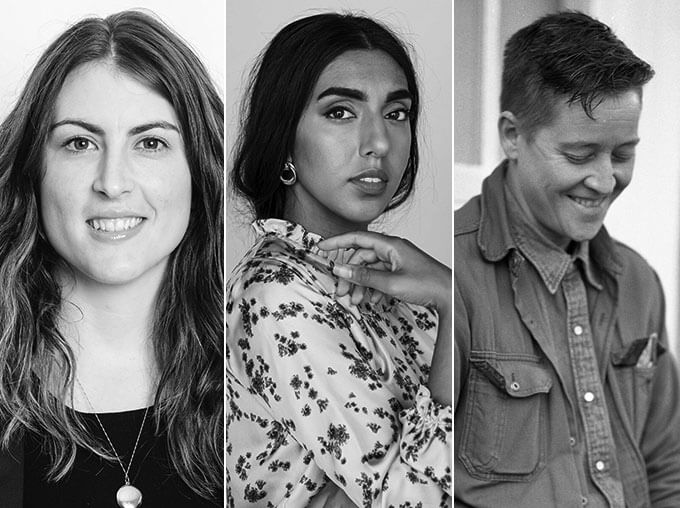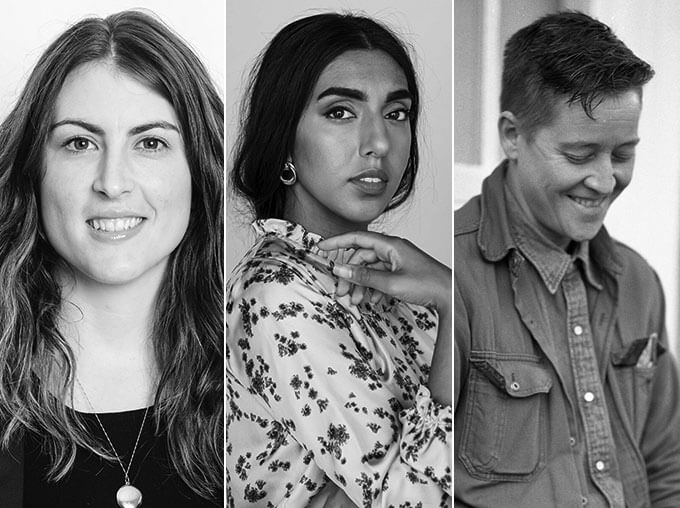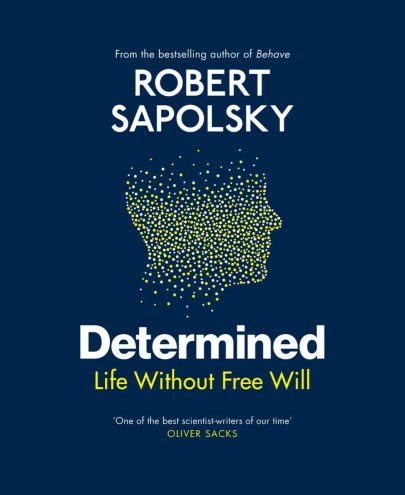May 22, 2017 Books

It was a lovely start to the day, though. Mood: giddy and unconstrained. Also, just before this reminder that it was the family events day, I’d happened to pass the festival office as a woman I’d met at a session the day before came out. “You know what? You know what? I lost a diamond ring here yesterday and it got handed in.” It had been her husband’s sister’s engagement ring. “I mean it would still have been a great day yesterday. But it just says a lot about this festival, that’s all”.
So that was nice. And now Charlotte Graham was on stage with Roxane Gay, and the ASB theatre was a sea of human faces, and if Graham was terrified she was hiding it well. This was Gay’s third appearance at the festival, and I had heard more complaints about the chairs of her two previous sessions than any other chairs at the festival; and chairs, for good or for bad, get complained about a lot. Often by me. I have more to say about chairs in general and Graham in particular, but I need to stop putting prefatory paragraphs in the way of Roxane Gay, who is a formidable and wonderful human being.
I had gone into this festival not knowing much about Gay beyond the titles of a couple of her books — Bad Feminist, Difficult Women — and that she had a following, and that there had been some degree of push-back from some quarters over some of her work. (As is always the case with anything feminist). I had vaguely supposed she was either 1) a firebrand of principled intellect, or 2) someone very good at spotting which way a certain section of the zeitgeist is heading and nipping round in front of it to declare herself its spokesperson. It turns out it’s the first of those. You cannot spend time listening to her and fail to see that she’s for real: a lot of the things she says are commonplaces of contemporary feminism, but she isn’t saying them because they’re the things people expect to hear, she’s saying them because they need to be said. And dear god, she says them with so much dignity and passion and wit; and also, quite often, with open anger.
So, on the way popular culture can present an interestingly flawed woman character in a TV show like Veep, but a real woman running for president is held to a blindingly ridiculous standard of perfection: “When we get to be as mediocre as white men, we’ll have arrived”. And on her five-year-old niece: “She thinks she’s a king. We need better popular culture, so she never has to start thinking she’s wrong”. And on the requirement that female characters in fiction be likeable: “When I read I’m not trying to make friends with the characters. Could we shift the conversation from is she likeable to is she interesting?”
The session moved easily across a wide range of topics and work, which allowed us to see how wide the range of Gay’s work and interests is — she wrote the screenplay for the adaptation of her novel Untamed State, she’s writing a series for Marvel Comics, she teaches writing at Purdue University, she’s a fan of The Rock. (Her disquisition on the wonders of The Rock, aka actor Dwayne Johnson, was where I tumbled from “you are impressive” to “you are amazing“.) The reason so much got covered is that Charlotte Graham asked all the right questions, and she did it with wit and enthusiasm and a succinct lack of verbosity which was a lesson in how to show respect for the writer you’re chairing: turn up prepared, let your personality into the conversation, but don’t put yourself in the way. She’s a young New Zealand woman, which is not a trivial detail in a session that covered questions of representation, and she’d been handed a job that really needed to be done right; you could feel the audience’s pleasure and pride that we had someone this good on the stage.
Speaking of doing the job right, question time began with Graham asking Gay if she had any advice for questioners. “Definitely make sure you have a question”, Gay said, a phrase I would like to see tattooed on the foreheads of certain audience members at other sessions. “If you’re coming up to make a statement, get a blog.” The questions were impeccable. The standing ovation afterwards was well earned.
I think it was directly after this session that I got into an argument with a good friend on Facebook over the issue of Gay’s chair the previous day, Simon Wilson. We’re still arguing as I write this. There is a lot you can say on the question of whether Wilson did a good job and the separate question of whether a white man really needed to be the festival’s choice of chair for a session with a black woman; all I’m going to say here is that I thought Wilson did do a good job, and under tricky circumstances, and a lot of people who were there agree, and a lot of other people who were there really, really don’t. (One of them, unfortunately, being Gay herself, which I have to concede makes my side of the argument harder to sustain). (And yet I persist.) Chairing is a vexed and vexing subject. This was illustrated further in the next session I went to, which was with Teju Cole, who sat down on the stage without anyone there to chair him at all.
This was my third session with Cole, and in the interests of getting to blog about a broader selection of writers I considered going to something else – Apirana Taylor and Rob Schmitz were both on stage elsewhere in the building in this time slot. But Cole had got under my skin; or anyway I’d failed to get under his. He maintains a cool distance under questioning, not hostile but not inviting; he was the most interesting person I’d failed to get my head around at a festival in years, and I wanted to try again. Also he was talking about photography – the session was a slide show introduction to 12 of his favourite contemporary photographers – and it seemed too interesting and too different from the main body of the festival to miss.
It was such a good session. Cole, it turns out, plays better solo. He’s an easy and authoritative speaker; I was going to say “lecturer”, but this was not a lecture, though it had the density and sophistication of content you’d expect in a tertiary teaching session. It was casual and deliberately approachable: definitely a talk. Cole moved from slide to slide, and often back again, taking us from one image to another and then going back to the first one to illustrate points of contrast. He is someone capable of saying things like, “He brought to the practice of photography a resolute and eloquent banality” and sounding natural and unstudied: this is a rare gift. He’s also highly aware that a line like that needs glossing, and he’d spend a bit of time talking about features of a given image that illustrated what he meant. I cover film professionally, and have done for a decade; I think a lot about image construction and the use of light. But still photography is a different art again, and we live in an age of maximum ease of access — everyone has a camera in their pocket now, and thanks to Instagram and Tumblr and Facebook it doubles as a means of mass distribution — with the result that photography is so ubiquitous I tend to feel overwhelmed when I try to approach it. Cole is an expert and an enthusiast, and he was inviting us to stop feeling overwhelmed and just think about some images a bit. He was suggesting ways in. It was one of the best festival sessions I’ve been to — utterly unlike Roxane Gay’s, and equally inspiring.
At this point I had spent half a day listening to two of the three writers from Saturday’s Art of the Essay panel. I felt like I ought to go find Ashleigh Young and get her to explain things to me for a bit so I could complete the set. Instead I took an hour off and went to lunch. People often tell me their best festival experiences are when they go to a single great session and then go home to think about it. My usual response is, “But you miss so much if you do that!” This was the first time in a while I’d found myself hitting saturation point early in a festival day: so much to think about, please pause the world. When I came back Rupi Kaur was about to go on stage, and I knew nothing about her at all, so I grabbed a seat.
Seats at this session were not easy to grab; people were being turned away. There were I think three other men in the room. (“Brave of you to be here”, one woman said to me kindly.) The crowd was young, female, and largely non-white. Kaur is an internet sensation, a young Indian/Canadian woman who began posting her poems online a few years ago and found them going viral. Her following is global. Being in that crowd was a privilege, and it was also an education in irrelevance: my responses to this poetry were beside the point.
And it mostly was a session of poetry performance. After a brief discussion with chair Courtney Sina Meredith – “Two women of colour on the same stage! This is a historic event. More of this would be good” – Kaur got up and read for 45 minutes, interspersing poems from her book Milk and Honey with spoken word pieces. She was articulating the experience of being young and female, from early puberty through to early adult relationships — the things boys and men do, the things they want, the things they never get, the friendship of other girls, the pain of falling for the wrong guy, the pain of falling for the next wrong guy, learning to value yourself — and the most fascinating thing for me was watching the faces of the crowd. These were things they had not heard said out loud often enough. Afterwards I asked a woman about my own age what she’d thought. “Fantastic. I wish she’d been around when I was 20”.
All festival I had been hearing things about Ivan Coyote. They – Coyote is gender-queer, and uses the singular “they” and “their” – were by all accounts the stand-out presence at the festival schools programme early in the week. (One teenager came out at the mike at question time: you need someone capable of creating an extraordinary sense of safety for that to happen.) The last general events time slot of the weekend was my first chance to see them. It was a complex and wonderful session.
The purely wonderful bits first: Coyote is as eloquent and wise a person as you’ll encounter in a month of blue moons. “Wise” is a word that’s been blanded out in our culture by overuse, but if you hear someone cutting through bullshit to the heart of issues that are complex and difficult and vital, and they do it again and again, and they’re unstudied about it and yet very careful to avoid adopting a guru position, then you’re listening to someone wise, and you should make the most of it, because it isn’t common. Coyote writes across a range of forms – their latest book is the Tomboy Survival Guide, a memoir in the form of a handbook. (Handbooks and how-to guides were a beloved and beguiling form for them, growing up.) They talked about being queer in a straight culture, and a wide range of associated issues. “You can’t legislate compassion… storytelling is the best tool we have to step across these lines in the sand we’ve drawn for ourselves”.
The complex bits: this was another session where the choice of chair was interesting and potentially disastrous. Kirby-Jane Hallum is an academic specialising in 19th century writing; she’s good-humoured and she was very well prepared, but I have no idea why she was picked to chair Coyote. Again and again, she came out with abstruse and overly intellectualised questions, leavened with several which were not so much over-thought as simply wrong-headed. “What’s the one thing you’d want readers to take away from this book?” only needs a little bit of tweaking to be unobjectionable, but Hallum didn’t tweak it, and so she was met with a puzzled pause, and then, “Do I have to pick only one?” Another question produced the response, “You have a PhD, don’t you”.
It took Hallum a while to respond to these hints, which meant that we got to watch Coyote being patient, and funny, and quietly insistent on being seen. The reason I ended up thinking Hallum was a good enough choice of chair was that she did figure it out: after a few more bits of push-back she laughed and threw down her list of questions, and started talking to the person on the stage with her, rather than the one she’d had in her head before they came on. It was an admirable bit of self-editing. This was not a session about only one thing, but its central idea was that people need to be allowed to be themselves. Watching a practical demonstration of that play out in real time was worth a few uncomfortable moments.






